
Mass Nouns Explanation and Examples
Mass nouns Mass nouns are nouns which behave like uncount nouns when they refer to a substance, e.g. Use detergent, and like count nouns when they refer to types or brands of substance, e.g. Use a strong detergent; More detergents are now available. Mass nouns have the same grammatical behaviour as Variable nouns see Section 3.In the Collins Cobuild English Dictionary, mass nouns are labelled.
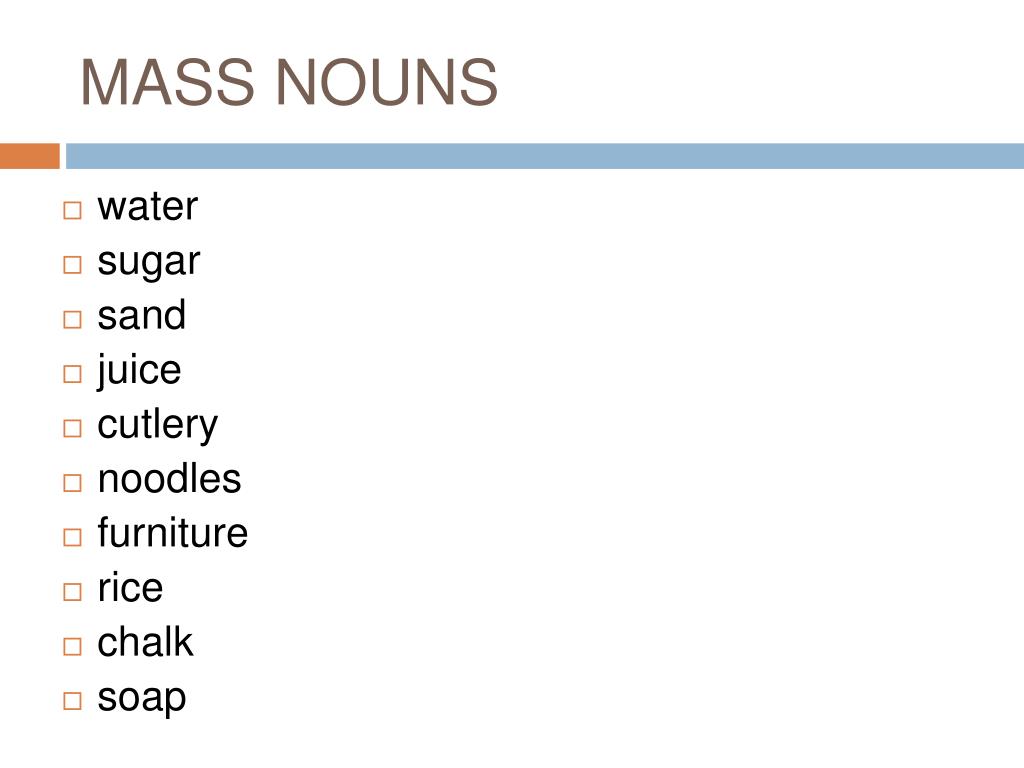
PPT Nouns PowerPoint Presentation, free download ID1491331
A mass noun refers to something that can't usually be counted. In fact, it's sometimes called an uncountable or noncount noun. It's not to be confused with collective nouns! In this post, we'll explain the rules that apply when you use mass nouns in your writing. Examples of Mass Nouns Mass nouns usually belong to one of the following groups:

What are Mass Nouns? English Grammar lesson YouTube
What Are Mass Nouns? A mass noun (or non-countable noun or noncount noun as it's also known) is a noun without a plural form. Put another way, a mass noun is one that cannot be counted. Mass nouns are singular . Table of Contents Common Categories of Mass Nouns Mass Nouns vs Countable Nouns Some Nouns Can Be Countable or Non-countable

What are mass nouns? in 2021 English teaching resources, English grammar, Proper english grammar
These are nouns that refer to a substance that can be divided or measured but not counted, e.g. sugar, water. They do not usually have an indefinite article in front. Meat is usually more expensive than cheese. Sugar is quite cheap. Mass nouns only take a plural in special cases. They can be counted when they refer to:
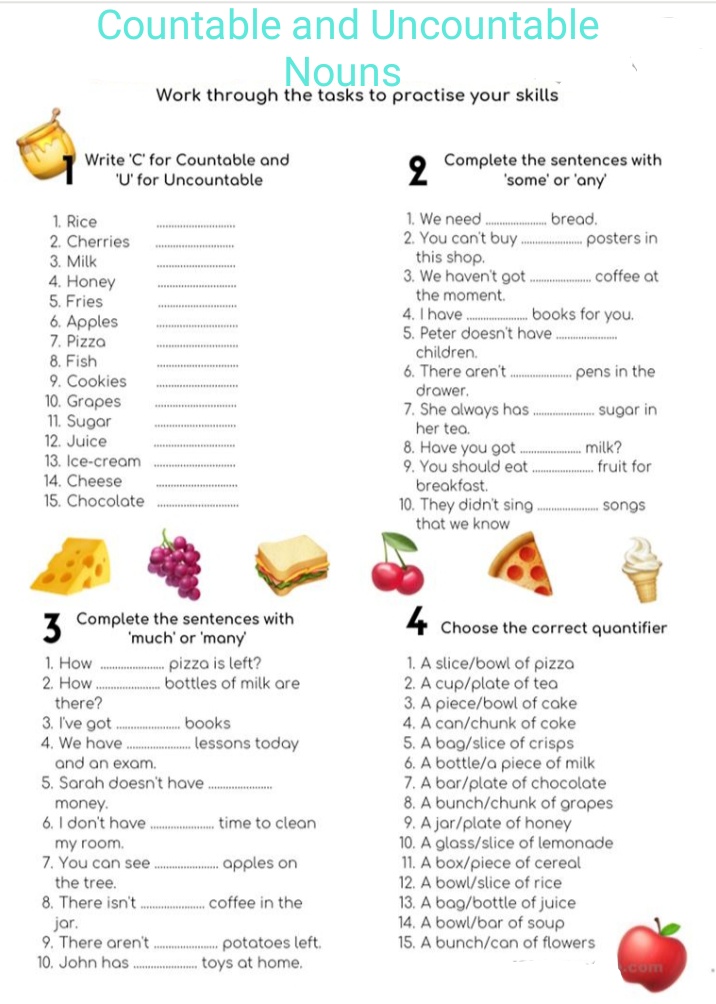
Count/Mass Nouns English Notes Teachmint
In linguistics, a mass noun, uncountable noun, non-count noun, uncount noun, or just uncountable, is a noun with the syntactic property that any quantity of it is treated as an undifferentiated unit, rather than as something with discrete elements. Non-count nouns are distinguished from count nouns .
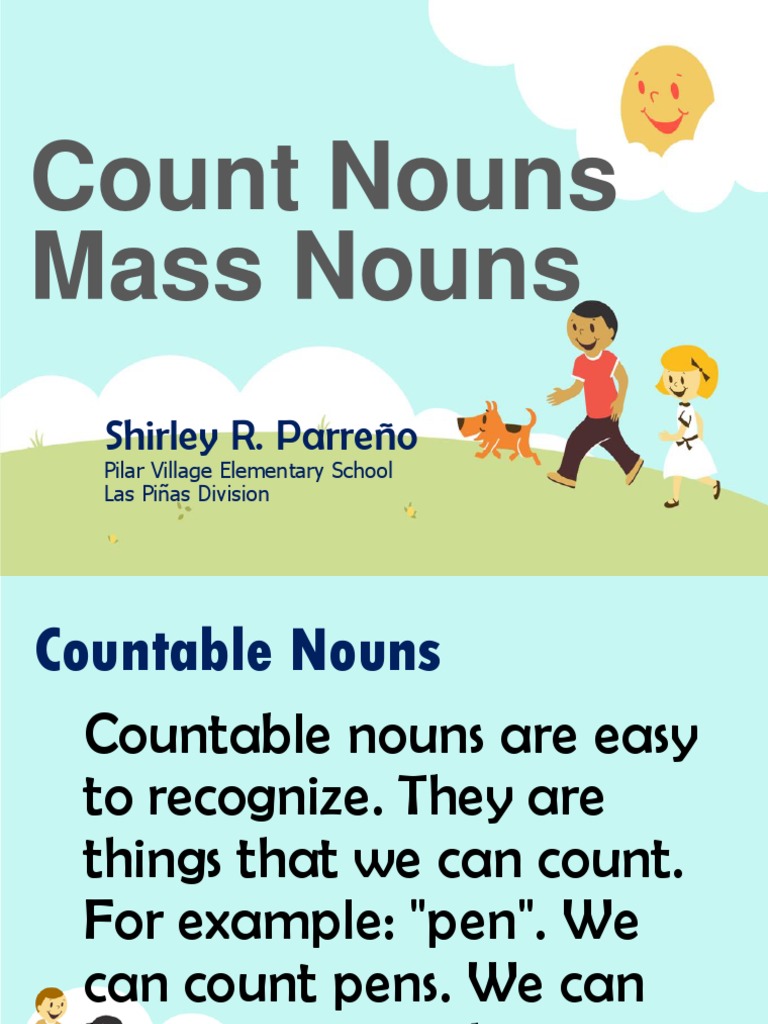
Count Nouns and Mass Nouns Ppt Noun Syntactic Relationships
These mass nouns (which are sometimes called noncount nouns ) usually have only singular forms— spaghetti, rice, and gold, for example. Count nouns in the singular can follow an indefinite article (or another determiner): a plate, a bag, one diamond.

GRADE 4 ENGLISH QUANTIFIER OF MASS NOUNS YouTube
A mass noun, also known as a non-count noun, is a type of noun that refers to a substance or concept that can't be counted. For example, "water" is a mass noun, as you can't count individual water molecules. Examples. However, you can count objects made of water, like "ice cubes."

Nouns 14/17 Mass Nouns 1/2 Learn english, Nouns, Nouns worksheet
According to Grammar Party Blog, mass nouns which are also called "uncountable nouns" and "noncount nouns," are nouns that cannot be divided into separate parts such as substances, objects, and concepts. Unlike a count noun, there is no definite quantity of a mass noun.

Mass and Count Nouns Exercises YouTube
Count and mass nouns. Nouns can typically be divided into two categories: COUNT and MASS nouns. Nouns that are countable (e.g. "one house," "two houses;" or "one deer," "two deer" are called "count nouns.". The plural forms of the these nouns are usually made by adding an "s" to the singular forms. For example: Singular.
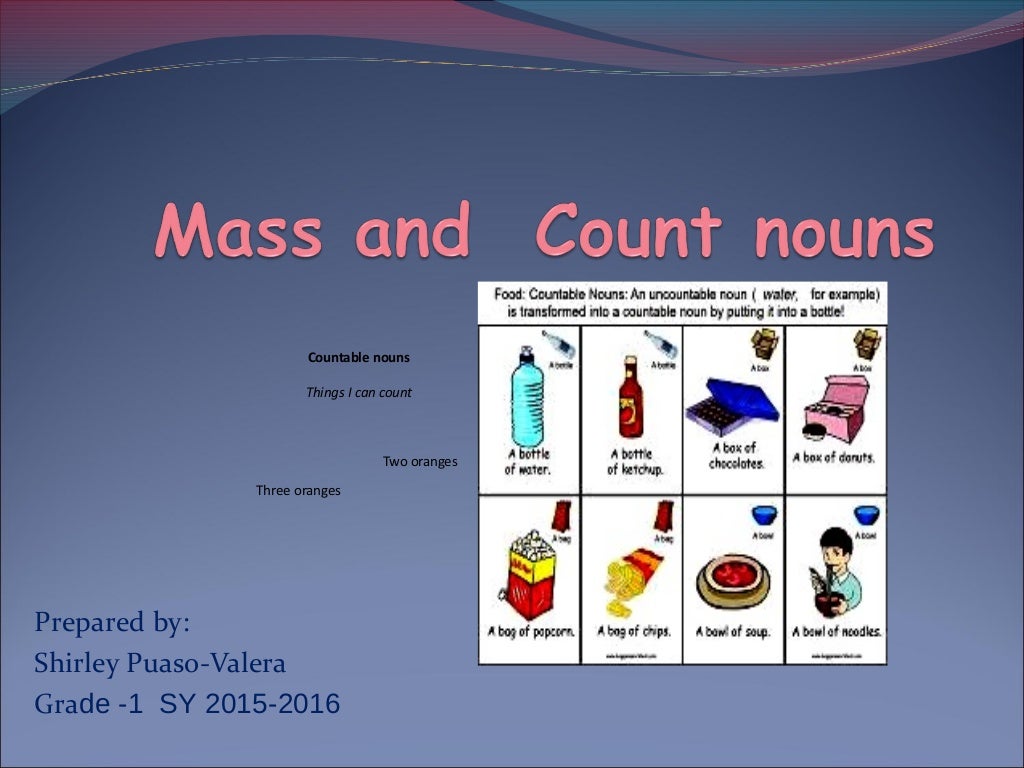
Mass and count nouns
Mass nouns use quantifiers that signify amount (e.g. much, a bit of, etc.). Types of Nouns Frequently Asked Questions. How many types of nouns are there? This depends on what book you're reading, as it varies arbitrarily. Some references list singular and plural nouns as their own types, while some list them as sub-types of common and proper.

Nouns 15/17 Mass Nouns 2/2 Learn english, Nouns, Grammar help
A noun can be defined as: the name of a person, place, thing, or idea. Basically, whatever exists, can be named and that name is a noun. There are proper nouns, which names a specific person, place, or thing (Katrina Kaif, Queen Vicotria, Asia, Varanasi, India, Acer Computer, God, Hinduism, the BJP), is almost always capitalized.
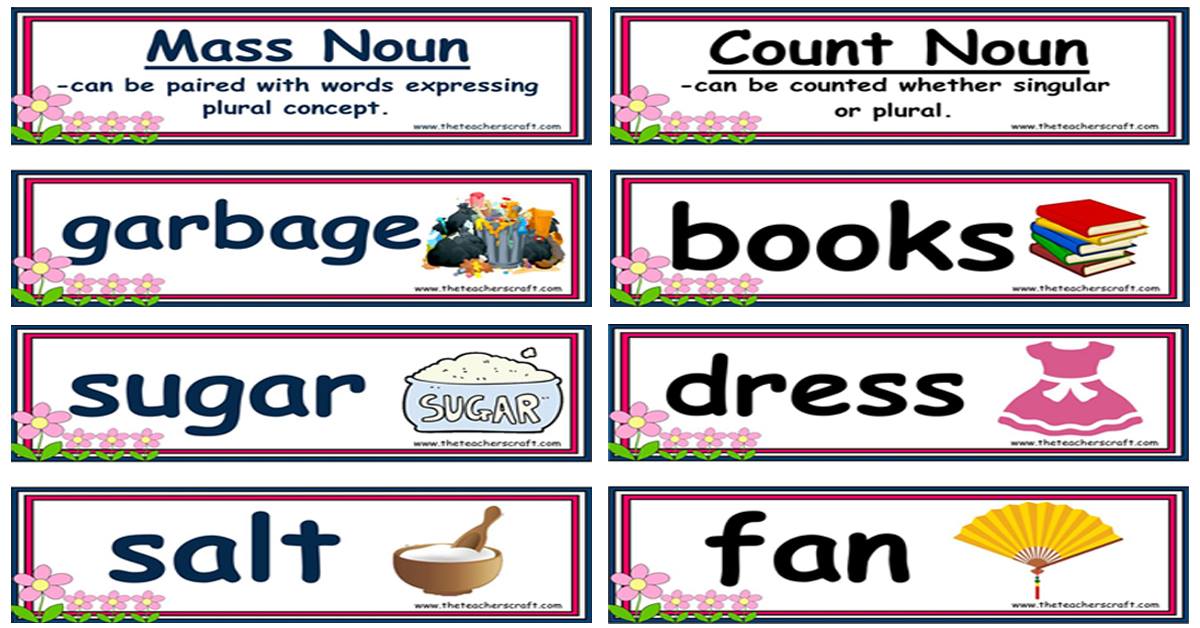
Nouns Count & Mass 20 Sets The Teacher's Craft
In linguistics, a mass noun, uncountable noun, non-count noun, uncount noun, or just uncountable, is a noun with the syntactic property that any quantity of it is treated as an undifferentiated unit, rather than as something with discrete elements. Non-count nouns are distinguished from count nouns. Grammatical features. Related to nouns.

What Is a Mass Noun? 2023 AtOnce
A mass noun is a noun (such as advice, bread, knowledge, luck, and work) that names things that, when used in English, cannot usually be counted. A mass noun (also known as a noncount noun) is generally used only in the singular. Many abstract nouns are uncountable, but not all uncountable nouns are abstract.

Kinds of Nouns Count Noun Mass Noun English 4 MELC YouTube
Mass nouns (or non-count or uncountable nouns) represent nouns that occur in abstract quantities and can't be counted. These nouns don't have plural forms and can't be signified by numbers. At first glance, mass nouns don't look that different from their counterpart called count nouns. This is where English language learners encounter difficulty.

Collection of Mass Nouns PNG. PlusPNG
a noun that is usually uncountable but can be made plural or used with a or an when you are talking about different types of something. For example, bread is used as a mass noun in the shop sells several different breads. See mass noun in the Oxford Advanced American Dictionary
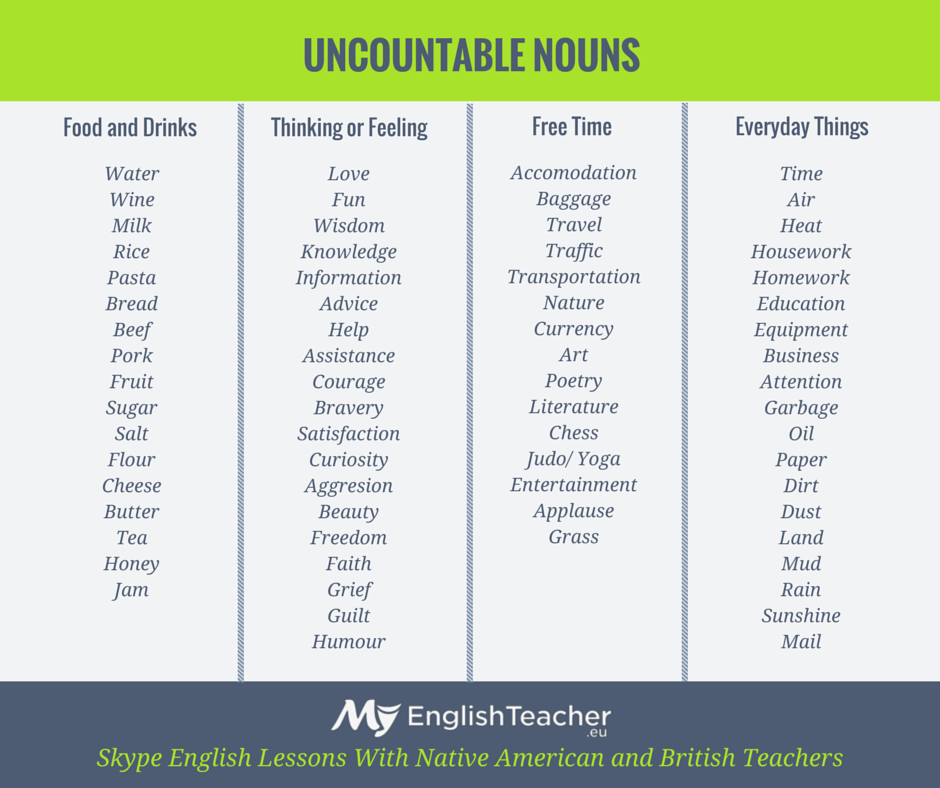
Collection of Mass Nouns PNG. PlusPNG
A mass noun is a person, place, or thing that do not have a plural form. In a sense, a mass noun cannot be counted. Below is a list of a mass noun examples. Non-count nouns generally fall into these categories. A mass: work, homework, equipment, money, transportation, jewelry, clothing, traffic, luggage